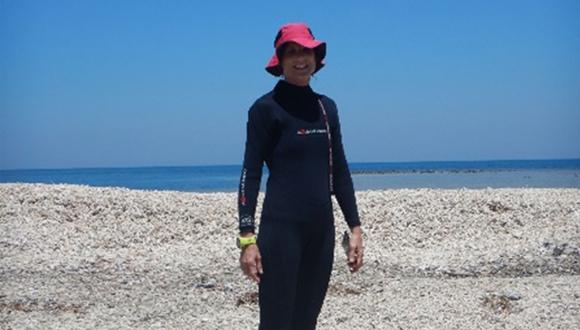דוקטורנטים מספרים - Inbal Ayalon
The effect of Artificial Light at Night (ALAN) on coral reefs behavior and physiology
Inbal Ayalon (Ph.D. candidate)
Supervisors: Prof. Dror Avisar and Dr. Oren Levy ( Bar-Ilan University)
My home and research area are both located in Eilat in southern Israel, along the Red Sea coast. I love diving and exploring the marine environment. I work at the Interuniversity Institute for Marine Sciences in Eilat. As our coral reefs are the northernmost ones in the world, they are unique. Sadly, however, these coral reefs are threatened by increasing anthropogenic perturbations from intensive development of the shoreline and rapid urban expansion of two cities, namely Eilat and Aqaba. In recent years, exposure to artificial light at night (ALAN) in the coastal marine environment has led to diverse impacts and has become a major emerging issue in biodiversity conservation. Light pollution masks the natural light of the moon and stars, and it therefore disrupts mechanisms of chronobiology, physiology and behavior in most organisms. With the understanding that ALAN might destroy our spectacular marine environment, I have decided to explore the implications of Artificial Light at Night on corals. As a Ph.D. student at the Porter School of Environmental and Earth Sciences, Tel Aviv University under the supervision of Prof Oren Levy and Prof. Dror Avisar, my research is focusing on the effect of ALAN and other anthropogenic stressors on corals behavioral physiology and biological processes.
My colleagues and I have recently published a paper in Current Biology showing that artificial light at night is masking the nature lunar light cycle, and thus altering gametogenesis in broadcast spawning corals.
We hope that the outcome of our research will help us to formulate specific management strategies to help mitigate this potentially harmful impact of light pollution at night on the aquatic ecosystem in increasingly populated coastline zones.


